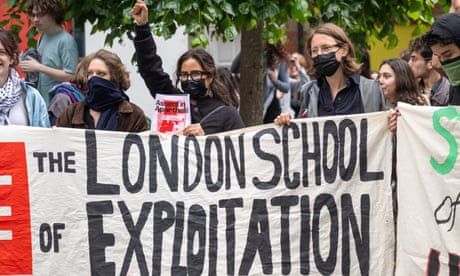
There is a difference between legitimate protest and acts of terrorism, writes Vivienne Rivis
In 1969 I was a London School of Economics undergraduate when access to the women’s toilets in the Old Building was suddenly blocked by workmen erecting iron gates, supposedly to prevent “riots” after a series of sit-ins and protests (UN rapporteur challenges LSE over action against pro-Palestine protesters, 20 October). LSE was subsequently closed for a month, interrupting our studies, so further demonstrations took place in the street. One memorable moment for this northern grammar-school girl was hearing my personal tutor yell from the back of a lorry: “It’s your fucking university – go and burn it down!” He was sacked, of course, but is still an emeritus professor at a British university. A mature student deploying a megaphone became a well-respected college principal.
On 7 July 2005, I was at a conference in central London, when we learned something was terribly wrong on the London transport network. As the scale of the bombings became clearer, my own fear merged with survivor’s guilt: the attack on the bus took place opposite my office in Tavistock Square, where colleagues witnessed the devastating aftermath of that bomb. As two of my other usual tube lines were also bombed, I can well understand the anxiety that might be triggered by unexpected events on the anniversary of 7/7 for any LSE staff who lived through those attacks.
Continue reading...